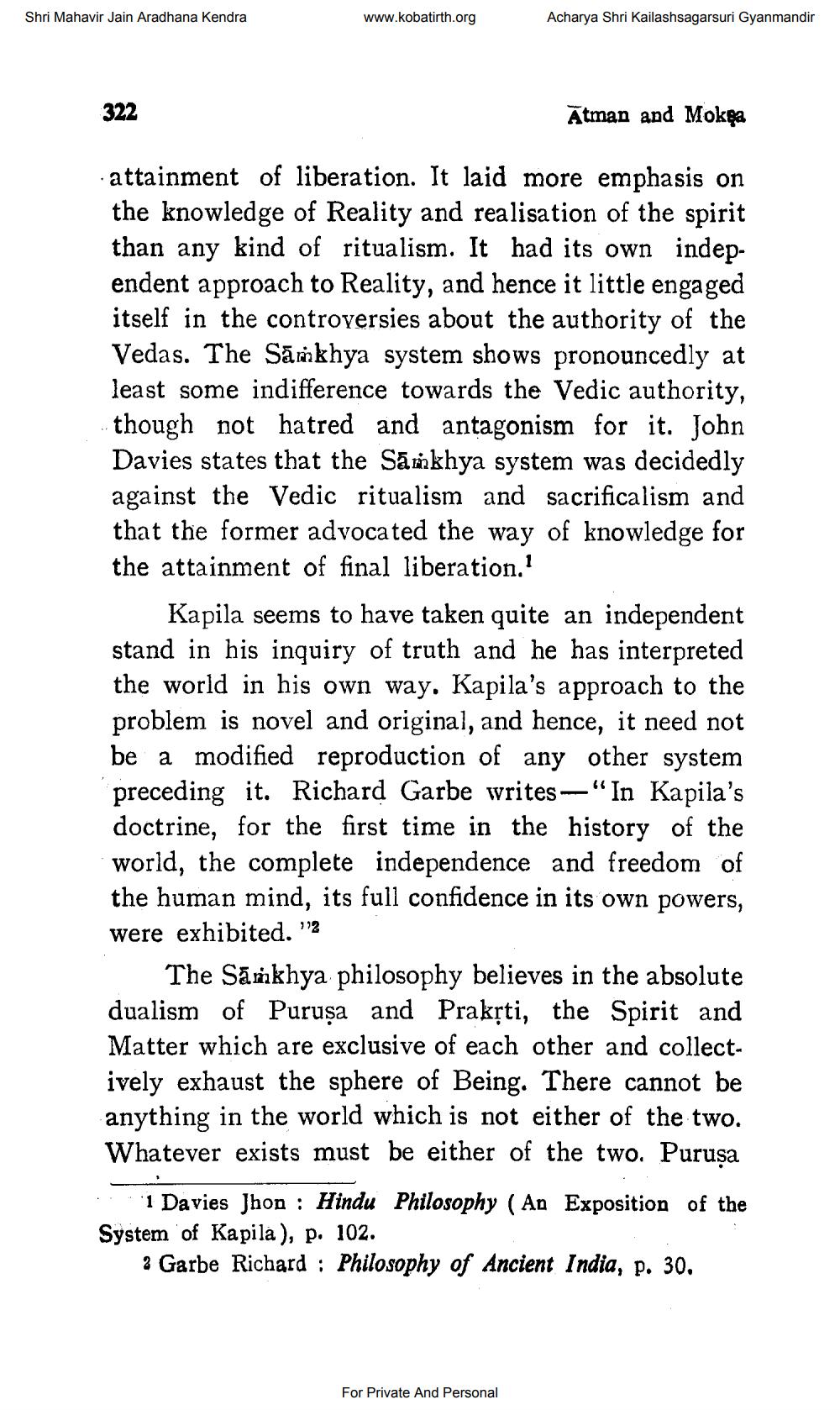________________
Shri Mahavir Jain Aradhana Kendra
www.kobatirth.org
Acharya Shri Kailashsagarsuri Gyanmandir
322
Ātman and Moksa
attainment of liberation. It laid more emphasis on the knowledge of Reality and realisation of the spirit than any kind of ritualism. It had its own independent approach to Reality, and hence it little engaged itself in the controversies about the authority of the Vedas. The Samkhya system shows pronouncedly at least some indifference towards the Vedic authority, though not hatred and antagonism for it. John Davies states that the Samkhya system was decidedly against the Vedic ritualism and sacrificalism and that the former advocated the way of knowledge for the attainment of final liberation,
Kapila seems to have taken quite an independent stand in his inquiry of truth and he has interpreted the world in his own way. Kapila's approach to the problem is novel and original, and hence, it need not be a modified reproduction of any other system preceding it. Richard Garbe writes - "In Kapila's doctrine, for the first time in the history of the world, the complete independence and freedom of the human mind, its full confidence in its own powers, were exhibited. '
The Sānkhya philosophy believes in the absolute dualism of Purusa and Praksti, the Spirit and Matter which are exclusive of each other and collectively exhaust the sphere of Being. There cannot be anything in the world which is not either of the two. Whatever exists must be either of the two. Puruşa .. '1 Davies Jhon : Hindu Philosophy (An Exposition of the System of Kapila), p. 102.
2 Garbe Richard : Philosophy of Ancient India, p. 30.
For Private And Personal




